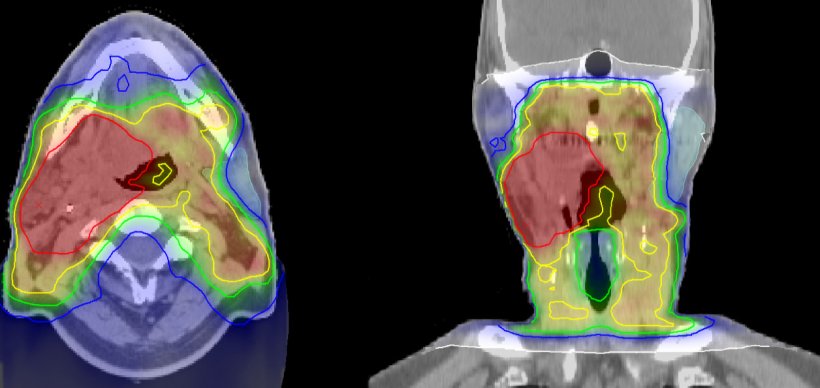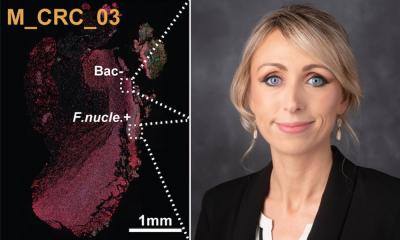News • Tumor research
microRNAs predict recurrence risk of head and neck cancer
A new method predicts the course of HPV-negative head and neck cancer after radiation chemotherapy. According to a recent article in the journal ‘Clinical Cancer Research’, five microRNAs (miRNAs) can provide the decisive data.
The work was conducted at the Helmholtz Zentrum München and the University Hospital of the Ludwig-Maximilians-Universität München (LMU) in close collaboration with the German Cancer Consortium (DKTK). Squamous cell carcinomas of the head and neck (HNSCC) are usually only diagnosed at an advanced stage and thus have a relatively poor prognosis. One cause may be human papillomavirus (HPV), but the main cause is tobacco smoking and excessive consumption of high-percentage alcohol.

Source: University Hospital of the Ludwig-Maximilians-Universität München
"While the virally induced tumors can be treated relatively well, the other head and neck tumors have a rather poor prognosis," said Professor Claus Belka, MD, head of the Clinical Cooperation Group (CCG) 'Personalized Radiotherapy in Head and Neck Cancer'. The CCG comprises scientists from Helmholtz Zentrum München and LMU and is closely associated with the DKTK. "In this study, we investigated how molecular markers can be used to define subgroups that undergo a different course of disease after radiation chemotherapy," Belka said. This could offer an opportunity for personalized treatment. "The Research Unit Radiation Cytogenetics at Helmholtz Zentrum München, headed by Professor Horst Zitzelsberger, offers optimal detection methods and expertise for the identification of such molecular markers, which allow the stratification of patients."
Patient data provide an approach to personalized therapy
If these figures can be confirmed on a large scale, personalized adjustments in therapy intensity could be derived from them in the future
Claus Belka
To investigate this question, the researchers examined cancer tissues from two independent tissue sample collections: Specifically, it was a multicenter patient collective of the DKTK Radiation Oncology Group (DKTK-ROG; coordination of the miRNA study Prof. Michael Henke) and a monocentric patient collective from the LMU Clinic for Radiotherapy and Radiation Oncology (head: Prof. Belka). In the analysis, the researchers focused on miRNAs: tiny molecules that influence the expression of numerous (in part cancer-relevant) genes. "Working with our colleagues enabled us to study a total of 162 samples from patients with HPV-negative head and neck cancer," said Dr. Julia Hess. She shares the first authorship with Dr. Kristian Unger. Both are heading a working group in the Research Unit Radiation Cytogenetics. Out of all of the miRNAs, the researchers were able to identify five miRNAs whose expression predicted the course of the disease and the risk of recurrence. "In combination with other clinical data, this five miRNA signature allows the definition of four groups with different prognoses," Unger added.
"Such molecular markers are the first prerequisite for personalized treatment approaches in HPV-negative head and neck tumors," said Belka. "If these figures can be confirmed on a large scale, personalized adjustments in therapy intensity could be derived from them in the future." For example, it would be conceivable to reduce the intensity of therapy in patients with a low risk of recurrence or to increase it in high-risk patients. In addition, it is now possible to search for the genes that are influenced by the five miRNAs and find out whether they represent worthwhile target structures for therapy.
Source: Helmholtz Zentrum München
04.09.2018











